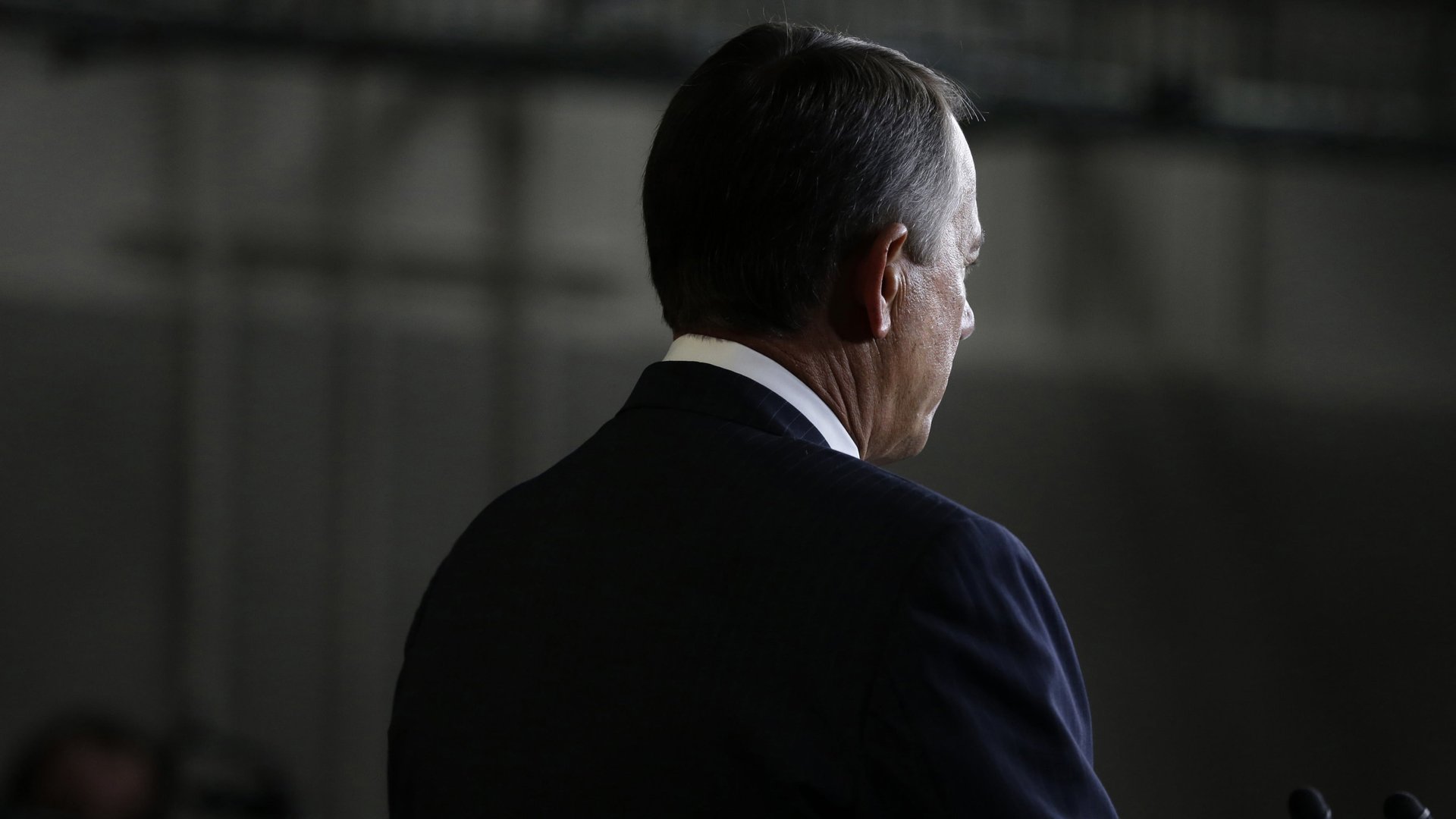Fiscal cliff negotiations are in limbo after Republicans split publicly on their approach
US political negotiations to avert triggering the fiscal cliff—a combination of government spending cuts and tax hikes set to take effect Jan. 1—are in limbo as the Republicans Thursday night withdrew “Plan B” legislation amid division within their party.


US political negotiations to avert triggering the fiscal cliff—a combination of government spending cuts and tax hikes set to take effect Jan. 1—are in limbo as the Republicans Thursday night withdrew “Plan B” legislation amid division within their party.
Republican House Speaker John Boehner had put forward the legislation—which didn’t stand any chance of making it into law because of opposition in the Senate—as a show of Republican consensus on a deal, and attempt to extract concessions from the White House in negotiations. The “Plan B” legislation involved higher taxes for Americans making more than $1 million annually. His inability to get consensus on the legislation raises questions about Boehner’s leadership of his party, and suggested that he might face a challenge to his speakership when it comes up for a vote after the New Year. It also lowers the odds of a negotiated solution to the fiscal cliff before the Jan. 1 deadline. US stock futures fell sharply on the news before rebounding.
Boehner issued this statement:
“The House did not take up the tax measure today because it did not have sufficient support from our members to pass. Now it is up to the president to work with Senator Reid on legislation to avert the fiscal cliff. The House has already passed legislation to stop all of the January 1 tax rate increases and replace the sequester with responsible spending cuts that will begin to address our nation’s crippling debt. The Senate must now act.”
The White House said in a statement:
“The President’s main priority is to ensure that taxes don’t go up on 98% of Americans and 97% of small businesses in just a few short days. The President will work with Congress to get this done and we are hopeful that we will be able to find a bipartisan solution quickly that protects the middle class and our economy.”
Democrats and the Republicans remain divided over the extent of federal spending cuts necessary, the size of tax hikes on the wealthy, and the level where tax increases would kick in.
Republican Majority Leader Eric Cantor tweeted after today’s news:
The stakes are stark for the leaders of both parties. For Boehner–the closest thing to a national Republican leader since Mitt Romney lost the presidential election last month–it was a humiliating setback. In a situation that plainly called for creativity–including the option of cobbling together a winning hand that included some Republican and some Democratic votes–Boehner bet all his money on the bulldog strategy that his party has favored in recent years: winning with solely the votes of his own majority. The strategy failed, and the timing was unfortunate–the first big vote after his party’s clobbering in the Nov. 6 general election. He was left weakly passing the responsibility squarely over to his rivals. He and perhaps his Tea Party-backed deputy, Eric Cantor, may face a serious challenge to their continued leadership when they go up for a vote before the entire House on Jan. 3.
For Obama, the risks are also high. Whereas he might be tempted to rejoice at the Republican pratfall and ridicule the party’s ineffectiveness, any satisfaction will be short-lived: with his opponent wounded, perhaps mortally, Obama now must come up with a fiscal plan for both parties, and persuade a majority to sign on. Unless he, too, is to suffer a loss of prestige, he will have to be the creative legislator who cobbles together that winning bipartisan hand.